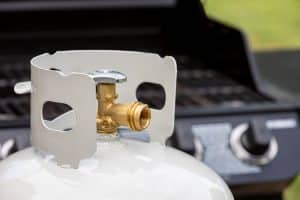Home > Energy Plans > Gas vs Electricity Costs
Gas vs Electricity Costs
Have you ever wondered about gas vs electricity costs? Find out which one of these energy sources is cheaper here with Savvy.
Author
Savvy Editorial TeamFact checked

When it comes to household energy bills, the choice between gas and electricity can significantly impact your budget. Understanding the differences in costs and efficiency is essential for making informed decisions. In this Savvy guide, we'll explore the differences between using gas and electricity, helping you determine the most cost-effective and energy-efficient option for your needs. Whether you're considering heating, cooking, or hot water, knowing the pros and cons of gas and electricity will empower you to make the right energy choice for your household.
Which is the cheaper energy to use – gas or electricity?
The question of whether gas or electricity is cheaper to use is not a simple question to answer, because it depends on a number of variables. It will depend on what you are using the gas or electricity for, the efficiency of the appliance you are using, and what specific type of energy plan you’ve got. To illustrate the complexity of this question, think about the following:
- Natural gas piped into your home through gas mains is generally cheaper than LPG gas bought in cylinders or bottles
- GreenPower electricity, which guarantees to use electricity from renewable energy sources, is usually slightly more expensive than standard electricity generated by ‘dirty’ fossil fuels such as brown and black coal
- Supply charges for mains natural gas are generally cheaper than for electricity on a per-day basis, but supply charges only form one portion of your average electricity bill
- Solar electricity is said to be cheap, totally renewable ‘clean’ energy – but the cost of getting a solar panel system installed onto your roof can amount to thousands of dollars
The other factor to take into consideration when comparing gas and electricity is the efficiency of that energy source. There is no point in comparing the price of one kilowatt of electricity compared to one megajoule of gas because the energy efficiency of both types of power are totally different. It is equivalent to asking ‘How much does it cost to run a fridge.’ The answer will totally depend on the type of fridge, its size, the age of it, the energy efficiency of that make and model, and how and where it is used, to name just a few relevant variable factors! Therefore, to find a valid answer we need to look more closely at specific uses for gas and electric appliances.
Is it cheaper to have a gas or electric hot water service?
Most households spend around a quarter of their total power bill on heating hot water. Not only do we use hot water for daily showering, but for washing dishes and clothes too. Historically, instant gas hot water systems were considered the cheapest way to heat water due to the efficiency of such systems, and lower gas prices. However, with the increasing popularity of renewable solar hot water energy systems, and energy-efficient electric hot water heat pumps, the story is now different:
In general terms, the cheapest way to heat water in order from the cheapest to the most expensive methods are:
- Solar electric hot water systems: Solar hot water systems use solar collectors to absorb sunlight and convert it into heat. The heated water is then stored in a well-insulated tank for later use. They are highly cost-effective in regions with ample sunlight as they harness renewable energy, and reducing reliance on electricity or gas. While installation costs may be higher, they offer significant long-term savings over a gas water storage system.
- Electric heat pump hot water systems: Heat pumps extract heat from the air and transfer it to a water storage tank. They work like a reverse refrigerator, making them more energy-efficient than conventional electric systems. While heat pumps are effective in most climates, they perform best in warm and moderate temperatures.
- Gas continuous-flow hot water systems: Gas continuous flow systems heat water on-demand as it passes through a gas burner. They are more energy-efficient than storage gas systems, as they only heat water when needed. In regions with reasonable gas prices, they can be cost-effective and provide endless hot water so you never have to suffer a cold shower if you are last to use the bathroom.
- Gas storage hot water systems: Gas storage systems heat and store water in a tank until it is required. While they are generally cheaper to purchase than electric systems, they can be less energy-efficient and have higher ongoing running costs. They also have to replaced approximately once every ten years.
- Electric storage hot water systems: Electric storage systems heat water and store it in an insulated tank. While they are widely available and have lower upfront costs, they can be less energy-efficient and result in higher long-term electricity bills.
- Instant electric hot water systems: Instant electric systems heat water on-demand as it flows through the unit. They are compact and suitable for smaller households with low hot water demands. However, they can be less cost-effective for larger households due to higher electricity consumption and lower heating efficiency.
Before choosing a new hot water system, consider your specific requirements and consult with a professional to determine the most suitable and efficient option for your needs.
Is a gas ducted heating system cheaper or more expensive than an electric one?
The cost-effectiveness of a gas ducted heating system compared to an electric one depends on various factors, such as current energy prices, initial installation costs, and the size and efficiency of the specific system. Generally, gas ducted heating tends to be more cost-effective than electric heating in Australia. Here's why:
- Energy prices: Natural gas is usually cheaper than electricity in Australia, making gas heating potentially more economical in the long run.
- Efficiency: Gas ducted systems are known for their higher efficiency in converting fuel to heat, providing better value for money.
- Climate: Gas heating is more efficient in colder climates, like in southern parts of Australia, where electric heaters may consume more energy.
- Installation costs: While installation costs can vary, gas ducted systems sometimes require a higher upfront investment, but their lower running costs can offset this additional expense over time.
- Zoning and temperature control: Both gas and electric ducted systems allow for room zoning and effective temperature control, so there is little difference between how efficient both types of system are in heating your home.
- Environmental impact: Gas heating produces fewer greenhouse gas emissions compared to electricity generated from coal.
It's important to consider your specific circumstances, including the size of your home, energy usage patterns, and availability of gas connections in your area before deciding between a gas and electric ducted heating system.
Should I get a gas stove and oven, or an electric stove, or a dual fuel combination one?
When choosing between a gas stove and an electric one, it's essential to consider your cooking preferences, energy sources, and lifestyle. Additionally, there are other types of stoves available, each with its own set of pros and cons. Let's explore the options:
1. Gas stove and oven:
- Provides instant heat for quick cooking.
- Offers precise temperature control.
- Even heat distribution reduces the risk of hot spots.
- Often more energy-efficient and cost-effective if you have access to natural gas, but will work on LPG gas bottles too.
- Preferred by many chefs for specific cooking techniques like wok cooking.
- Can be a higher upfront cost compared to some electric models.
- Requires a gas connection in the kitchen, either to the gas mains or to an LPG gas bottle, which may not always be available in all areas.
- Cleaning gas burners can be tricky, dirty and time-consuming.
- Gas ovens are known for uneven heating, with the oven hotter at the top and bottom but cooler in the middle, which can result in uneven baking.
2. Electric stove and oven:
- Lower initial cost than traditional gas stoves.
- Easy to clean, especially smooth-top electric stoves.
- Widely available and suitable for areas without a gas connection.
- Some electric ovens come with additional features like convection fans which distribute the heat more evenly.
- Far slower heating and cooling compared to gas stoves.
- Less popular with chefs who do a lot of wok cooking.
- Heat distribution may be uneven if there is no fan setting, leading to hot spots.
- Long-term running costs may be higher, depending on electricity rates.
3. Electric induction stove and electric oven:
- Offers rapid heating and precise temperature control similar to gas stoves.
- Energy-efficient and cost-effective due to direct heat transfer.
- Safer to use as the surface remains cool while cooking.
- Easy to clean, with a flat, smooth surface.
- Requires specific cookware with magnetic properties (ferrous material).
- Higher initial cost compared to gas and some electric stoves.
- May produce a slight humming noise during operation.
- Heat distribution in the electric oven may be uneven if there is no convection fan, leading to hot spots and uneven baking.
4. Dual fuel gas stove and electric oven:
- Combines the benefits of gas cooktops with the even baking of electric fan-forced ovens.
- Allows for versatile cooking with multiple heat sources.
- Offers the best of both worlds – gas stove for speed of cooking, and electric fan-forced oven for even heating
- More expensive than single-fuel stoves.
- Requires both gas and electricity connections in your kitchen in the same area.
- Dual appliances are often larger in size and won’t fit into smaller kitchen spaces which were traditional in older homes.
The best choice for you depends on your cooking style, energy availability, and budget. Gas stoves are excellent for precise cooking, while electric ones are easy to clean. Induction stoves offer rapid heating and safety features, while dual-fuel stoves provide versatility. Consider your specific needs and preferences to make an informed decision on the right stove for your kitchen.
Helpful energy guides
Compare energy plans
Disclaimer:
Savvy is partnered with Econnex Comparison (CIMET Sales Pty Ltd, ABN 72 620 395 726) to provide readers with a variety of energy plans to compare. We do not compare all retailers in the market, or all plans offered by all retailers. Savvy earns a commission from Econnex each time a customer buys an energy plan via our website. We don’t arrange for products to be purchased directly, as all purchases are conducted via Econnex.
Any advice presented above is general in nature and doesn’t consider your personal or business objectives, needs or finances. It’s always important to consider whether advice is suitable for you before purchasing an energy plan. For further information on the variety of energy plans compared by Econnex, or how their business works, you can visit their website.









